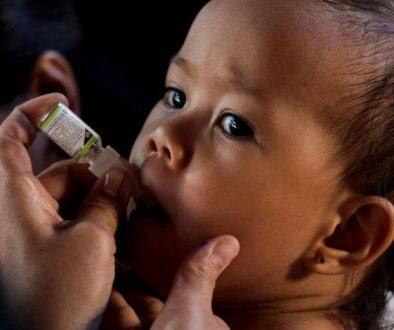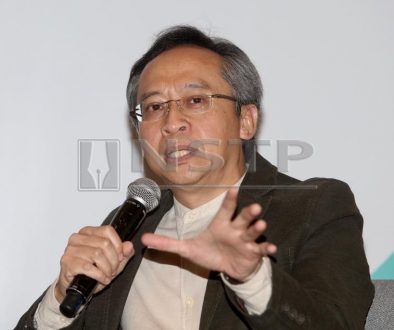Health Ministry: Children under five in Sabah to get additional polio immunisation

KUALA LUMPUR (Bernama): All children aged five years and below in Sabah will be given an additional polio immunisation to stop the proliferation of the virus in the state.
”A methodical plan is being drawn up and the additional immunisation will be implemented as soon as possible, ” said Health director-general Datuk Dr Noor Hisham Abdullah (pic) in a statement here Sunday (Dec 15).
Currently, he said, immunisations for children who had missed the procedure in the area where a polio case was confirmed and its surroundings had been implemented to ensure the polio immunisation coverage was boosted.
Until Dec 14,2019,59 children aged from two months to 15 years in the areas which had been overlooked for immunisations, have been given the polio vaccine. All the children involved were non-citizens, he said.
On Dec 8, the media reported that a three-month-old baby from Tuaran, Sabah was infected by the polio virus – the first case in 27 years after Malaysia was declared free of the disease.
Dr Noor Hisham said infectious diseases like polio were borderless and the best way to prevent them is through immunisations.
”As such, parents are urged to ensure children who have missed immunisations are taken to the nearby health clinics.
“A rescheduling of immunisations for children who have been overlooked will be done depending on suitability, ” he said.
He said the Health Ministry (MOH) would also contact the World Health Organisation (WHO) directly to obtain the latest information on the global polio situation.
He said MOH was also refining co-operation with the United Nation Children’s Fund (Unicef) to obtain vaccine supplies at a low cost (subsidised by Unicef) for a programme to immunise non-citizens in Sabah.
The giving of the vaccine would be implemented through selected non-government organisations (NGO).
He said the activities to detect Acute Flaccid Paralysis (AFP) cases, which showed a symptom akin to poliomyelitis, (namely, a proxy to poliomyelitis) in the area of residence of the baby concerned, were now being widened to nearby and high risk areas.
A total 1,553 people had been inspected, and none with the AFP symptoms had been detected, he said, adding that samples of faeces from 20 close contacts of the baby had been taken for laboratory tests and were waiting for the results. – Bernama


